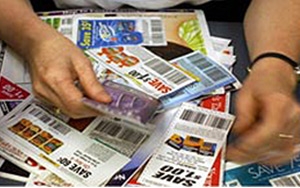research
Consumers Want Convenience Of Mobile Coupons
- by Tanya Gazdik , July 7, 2015
There are valuable take-awa ys for marketers from a recent Forrester Research report on identifying consumer coupon usage trends and preferences.
ys for marketers from a recent Forrester Research report on identifying consumer coupon usage trends and preferences.
In addition to driving sales, Forrester explains in “Count On Contextual Coupons” how coupons can improve awareness, drive preference, increase shopping frequency and even reduce shopping stress.
Customers value coupons in different ways. While 65% of baby boomers redeem coupons on food and beverages, Gen Yers choose to use them on travel and entertainment.
Opportunities lie ahead with mobile wallet. While over two in five consumers (42%) say they use coupons all the time, nearly one in five (18%) say they would use coupons even more if they could be stored on their phone.
advertisement
advertisement
Mobile wallets like Apple’s Passbook (for iPhones) and Google Wallet (for Android phones) are a win-win solution for consumers and brands, says Mark Tack, VP of marketing for Vibes, which sends branded content (coupons, etc.) to Passbook and Google Wallet for its clients.
“For consumers, they are convenient shopping companions that store coupons and offers on the device consumers use most and sends reminders when the coupon is going to expire or when consumers are nearby a store,” Tack tells Marketing Daily.
For retailers, utilizing Apple’s Passbook and Google Wallet for mobile coupons opens up a new opportunity for ongoing communication between brands and consumers, he says.
“We’ve found that once a customer downloads a coupon to Passbook or Google Wallet, they almost never delete it, which means retailers and brands can continually update wallet content with new offers that keep their company top-of-mind (and top-of-wallet),” Tack adds.
One of the best practices to succeeding with mobile wallet marketing is to use a multichannel approach — leverage all forms of communications to encourage customers to download coupons and offers to Passbook or Google Wallet, he says.
“Men’s Wearhouse, for instance, added a “save to phone” option to emails and saw a 10 times higher redemption rate from those emails versus others,” Tack says.
Coupon redemption is skyrocketing. In 2013, 66 million digital coupons were redeemed, a 141% increase from 2012.
Mobile wallet brings context to coupons. Brands can use Apple's Passbook and Google Wallet to drive coupon redemption and store visits by delivering a coupon to a specific user when they are in close proximity of the store.
“For example, our customer Pep Boys was included in the report for seeing a 30% redemption rate for coupons saved by customers to Passbook or Google Wallet,” Tack says.





This is the future of couponing. Users are so attached to their phones, specifically during shopping trips, that having coupons readily available without having to do the work associated with printing, cutting, or having a newspaper subscription, will make the experience more streamlined and convenient.
Interesting piece, fascinating subject... and woefully underreported. Mobile coupon growth is currently limited to retailers who wish to adopt the technology. Until a mobile solution that serves manufacturers (Coke, Pepsi, General Mills - the traditional issuers of coupons!) is developed, mobile couponing will remain a niche play.
It's not about mobile wallets, nor is it about consumer demand. It's all about retail integration.
Until that happens (retailers working together, cats and dogs living together... IT WILL BE ANARCHY), mobile coupons won't be able to catch up with (much less surpass) the ancient, humble, MFR-issued paper coupon.